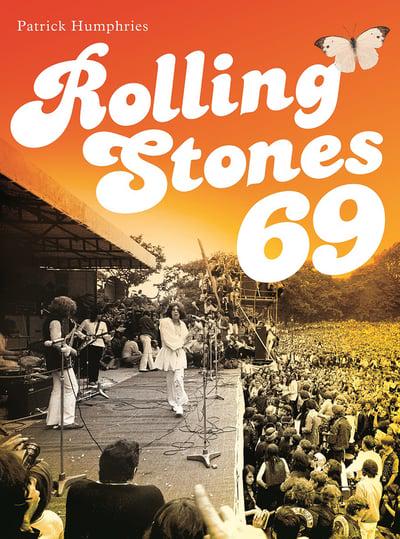
PATRICK HUMPHRIES – Rolling Stones 69
- by J.N.
- Posted on 26-10-2019
There is something unique and wonderful about the way in which this exquisite piece of literature is written in the sense that its words and sentences have a poetic and evocative quality to them, which is a real treat to experience. On top of that, the language is as rich in tone as it is in color, and the book effortlessly manages to conjure up a clear and pristine inner picture of what the 1960s were like in England and the US, namely with respect to the touring circuit, the recording studios, and the music milieu. The author’s own recollections of that long-gone era and what music (in his case that of the Rolling Stones) actually meant to him and others are both warm and heartfelt, and certain passages left me with a tear in my eye. Perhaps the greatest triumph of “Rolling Stones 69” is that Mr. Humphries writes in such an eloquent manner that his memories and recollections somehow become ours?
The power and alluring aspects of the Stones’ music and image (and the keys to understanding and unlocking them) loom large throughout its 256 glorious pages, but the author consistently provides a balanced and suitably critical perspective on everything related to the ensemble during that turbulent decade. This is perfectly illustrated by the way in which he covers the long line of events leading up to the 1969 Altamont appearance in the US and the consequences and fallout of that particular event. Sure, what would a book on the Stones be without the drama, the drug busts, the explosive song material, or the interpersonal dynamics between the members of the legendary band? But the thing is that our author neither succumbs to nor descends into the vortex of sensationalist journalism or hearsay – there is a strong focus and an understated discipline to Humphries’ captivating narrative that is far above such trivial matters.
1969 was arguably the most pivotal year in the epic story pertaining to the Rolling Stones. The disastrous Altamont Free Concert in December should have been a triumph for the gritty rockers from Britain, but it quickly escalated into a tragedy that has entered the collective rock ‘n’ roll consciousness as something akin to an unmitigated catastrophe, Then again, are things truly as black and white as that? “Rolling Stones 69” does an excellent job of discussing and evaluating the entire affair as well as the decisions and lack of planning that led to its bleak outcome. As Humphries rightfully points out, the Woodstock festival had casualties too, and there is plenty of food for thought contained within this marvelous account of what went down and how.
This one is right up there with Tony Barrell’s “The Beatles on the Roof” and David Hepworth “Uncommon People – The Rise and Fall of the Rock Stars” in terms of warmth, soul, and offering a fresh perspective on things. “Rolling Stones 69” is an absorbing read and a gripping story, and the entire text has an elegant flow to it that appeals to me greatly. In short, this is a compelling account of the Rolling Stones at the height of their (creative) powers, a thought-provoking analysis of the ideals of the 1960s, a vibrant glimpse of Swinging Sixties London, and how the strange forces of fame and fortune sometimes cloud our sense of judgment.
